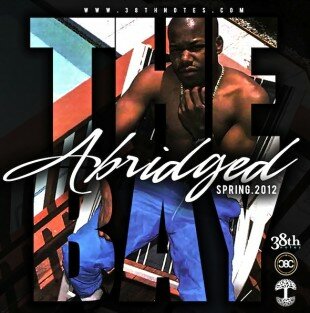
Bill Russell is recognized by many as the greatest basketball player of all time. Of course Michael Jordan fans will rebuke, as will any others who view scoring as the number one measure of a player’s prowess, but no player dominated the game to the degree which Russell did, or made the impact that he did. Among a laundry list of accomplishments, Bill Russell won an unprecedented 11 championship rings in 13 seasons and was the first African-American coach of any major sport.
For Russell, basketball was a journey. He was cut from his JV team as a Junior at West Oakland’s McClymonds High School, before being given a pity spot at the end of the Varsity bench by coach George Powles. He eventually came into his own during his senior year, but was offered only one scholarship upon graduation. He attended USF, where he introduced the world to shot blocking (the stat was not kept until Russell came along) and led them to two national championships. He then led the US to an Olympic gold medal and the Boston Celtics to the aforementioned 11 world championships, collecting 12 all-star appearances and five MVP awards along the way.
Despite his success however, Russell was viewed by many as surly, standoffish and even racist. In the segregated city of Boston, fans had a love-hate relationship with the centerpiece of their dynasty. Things boiled over when his house was broken into, trophies were trashed, racist graffiti was scribbled on the walls and his beds were defecated in. While the fans of Boston assumed that Russell was a hateful person because of his refusal to acknowledge fans, sign autographs or be cordial with the media, they evidently didn’t see that these behaviors were in response to the racism and resulting trauma he had dealt with in his life. He was drafted only five years after the color line in basketball was broken, so the Irish Catholic capital of America wasn’t exactly a bastion of tolerance, and Russell wasn’t raised to be submissive.

Russell’s parents, frustrated with the blatant racism of the south, chose to relocate the family to California. In Oakland, the racial climate eased, but the institutional effects of racism were still all too apparent. When he made it to the NBA, the effects were magnified further. Russell was not one to lay down or let the struggle of his family be in vain, so he took a hard stance against bigotry. This brought him face-to-face with a city and country that honored his physical ability, but not his humanity.
Russell was fighting for his humanity on a public stage a decade before the Black Panthers were birthed in his old neighborhood. Russell (who had an FBI file) marched with King, supported Ali when he refused to serve in Vietnam, refused to play in cities where he and his black teammates were refused service, and even bought land in Liberia for retirement. He then upped the ante by becoming the NBA’s first black coach. Interestingly enough, his teammate at McClymonds, Baseball hall-of-famer Frank Robinson, became the first black Major League Baseball manager. Another schoolmate at Mack, Curt Flood, was the first player to stand up to ownership and challenge the reserve clause, leading to the creation of free agency in a win for players’ rights. So you see, Bill Russell was more than another great athlete from Oakland, he was another freedom fighter from Oakland. There must be something in the water out here that refuses to settle.
Philosophically, the opposite of love is not hate. The opposite of love is indifference. So you don’t carry around hatred in your heart, because it takes your ability to be happy. I don’t hate anybody.” -Bill Russell speaking on hate
His prowess in the arena made the world take notice, but is was his spirit, resilience and wisdom that allowed him to prosper. Russell’s difficult life resulted in him cutting all ties with Boston and becoming a shut-in, but in recent years he has finally reemerged. He has reconciled with Boston, brokered the resolution of the conflict between Kobe and Shaq, received the Presidential Medal of Freedom and reintroduced himself to the world as the man he always was beneath all the glowering veneers. Today we are treated to the wisdom and brilliance of an OG who’s spent a tremendous life in the trenches and has had the time and space to put it all in perspective. Russell speaks in a slow and measured tone reserved for the most revered of elders, and manages to simultaneously exude bravado, Buddhism and brilliance in each breath. And then he cracks a smile and laughs and you fall in love with the man all over again.

Bill’s is an Oakland story, and it is a human story. He stood for himself and for others in his stead, and refused to let an unjust world break him. What others interpreted as callous selfishness was his defense mechanism. And now that society is slightly more evolved, perhaps his struggle, accomplishments and wisdom can finally be received as they always should have. Check out the videos below to experience for yourself. Cheers Bill!


